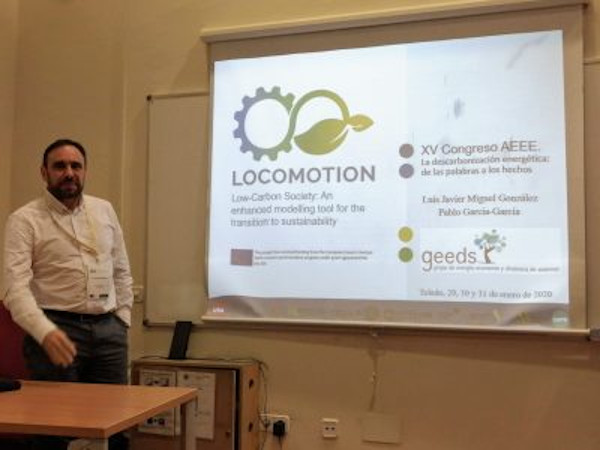Energy transition: From words to actions
LOCOMOTION’s Spanish partner is taking a central role in efforts to build an integrated community of modellers charting the path to a sustainable energy transition in Spain
By Pablo García García
As the climate emergency heats up and public demands for an energy transition to a low-carbon economy gain momentum, the 15th Congress of the Spanish Association for Energy Economics was devoted to the decarbonisation of the energy mix.
The University of Castilla-La Mancha hosted the event, which took place in Toledo between 29 and 31 January 2020, under the title ‘From words to action’, providing an open forum to discuss the energy transition from a transversal perspective. International scholars and experts, policymakers and technicians from the Spanish Ministry for the Ecological Transition and Demographic Challenge, as well as regional authorities and business representatives, gathered at the heart of the majestic medieval town to offer their insights about the energy transition and its socioeconomic implications.
This conference represented the first opportunity to introduce the recently created MENTES research network (the Spanish acronym for ‘Energy Modelling for a Sustainable Energy Transition’). MENTES was set up by the GEEDS research group at the University of Valladolid, together with four other universities (Castilla-La Mancha, Zaragoza, Navarra and the Pontifical University of Comillas) and three research institutes (CIEMAT, IMDEA-Energía and the Basque Centre for Climate Change).
These institutions were responsible for leading a session to present their projects to the audience, most of which are being funded by the European Union. Luis Javier Miguel, head of the delegation from Valladolid, delivered a comprehensive presentation on the origins, methodologies and scope of LOCOMOTION. He presented the project’s holistic approach, its harnessing of systems dynamics (a method which is rarely employed in economics) and the introduction of a financial module.
This gathering has placed both the MENTES network and the GEEDS team, on behalf of LOCOMTION, in good stead to lead and strengthen the efforts to model the sustainable energy transition in Spain, by opening up new pathways for cooperation among researchers and making a greater impact on society.
Pablo García García is a PhD student in economics and a pre-doctoral fellow at GEEDS (University of Valladolid). His research focuses on just energy transitions to low-carbon economies and sustainable welfare.




